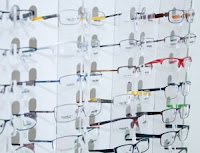Nation health
A network of local clinics and clinics provides initial medical care in Kuwait. Foreign residents can also use their services. When visiting a local clinic, you must have a medical
Private health care
Kuwait has a large number of private clinics and hospitals. The state regulates and oversees its standards and fees. At some of these private hospitals, doctors receive a percentage of
patients' fees for laboratory tests and medical checks. Most private hospitals have their own pharmacies. Most private hospitals are general hospitals with specialized departments. A new concept in Kuwait is the emergence of licensed medical centers that offer a full range of outpatient diagnostic tools covering all major medical specialties. In mid-1994, there was only one such center - in the Kuwait clinic.
Obstetric Services
Many major public hospitals have maternity wards. Al-Sabah State Maternity Hospital, located near Gamal Abdul Nasser Street in western Shuweikh, is perhaps one of the best
maternity hospitals in the world, providing a range of services for prenatal care, delivery, and postpartum care. Al-Sabah Hospital is fully equipped with implemented technologies, including more than 100 ICUs and well-trained and dedicated staff. Most obstetric services are free. However, for some procedures, for example, ultrasound, immigrants must pay. Payment is not taken in urgent and special cases. Payment is also taken for private rooms. Visiting hours at Al-Sabah Hospital are prohibited. There are also a number of private maternity hospitals. All maternity hospitals, public or private, require both marriage certificates to keep records.
Optics
Vision testing is usually free, and the prices for prescription lenses are pretty
reasonable. Conventional corrective lenses are obtained from
stock and new glasses can be delivered within 48
hours. Persons with complex recipes have to wait for several
weeks, as it may be necessary to import lenses from
abroad. Contact lenses may require more care due to dust storms that can cause eye irritation
card. It is issued at the clinic itself upon the presentation of a civilian ID. The patient must live in the area covered by this clinic. Local clinics are usually located in community centres, often close to local cooperative supermarkets. The clinic conducts pre-screening and routine activities. If necessary, patients are referred to specialists in a larger hospital. Although doctors don’t take home calls, there are outpatient clinics in major hospitals,
Kuwait State Hospitals
Emir Hospital in Kuwait City, the Jahra Hospital in Jahra, the Farwaniya Hospital in
Farwaniya, the Mubarak Al-Kabir Hospital in Jabria and the
Adan Hospital in Fahahil. Each main hospital provides
outpatient care and 24-hour emergency services.
Kuwait State Hospitals is divided into five health zones. Each zone has a main hospital - the
Emir Hospital in Kuwait City, the Jahra Hospital in Jahra, the Farwaniya Hospital in
Farwaniya, the Mubarak Al-Kabir Hospital in Jabria and the
Adan Hospital in Fahahil. Each main hospital provides
outpatient care and 24-hour emergency services.
Private health care
Kuwait has a large number of private clinics and hospitals. The state regulates and oversees its standards and fees. At some of these private hospitals, doctors receive a percentage of
patients' fees for laboratory tests and medical checks. Most private hospitals have their own pharmacies. Most private hospitals are general hospitals with specialized departments. A new concept in Kuwait is the emergence of licensed medical centers that offer a full range of outpatient diagnostic tools covering all major medical specialties. In mid-1994, there was only one such center - in the Kuwait clinic.
Obstetric Services
maternity hospitals in the world, providing a range of services for prenatal care, delivery, and postpartum care. Al-Sabah Hospital is fully equipped with implemented technologies, including more than 100 ICUs and well-trained and dedicated staff. Most obstetric services are free. However, for some procedures, for example, ultrasound, immigrants must pay. Payment is not taken in urgent and special cases. Payment is also taken for private rooms. Visiting hours at Al-Sabah Hospital are prohibited. There are also a number of private maternity hospitals. All maternity hospitals, public or private, require both marriage certificates to keep records.
Optics
reasonable. Conventional corrective lenses are obtained from
stock and new glasses can be delivered within 48
hours. Persons with complex recipes have to wait for several
weeks, as it may be necessary to import lenses from
abroad. Contact lenses may require more care due to dust storms that can cause eye irritation










.jpg)

No comments:
Post a Comment
Please Dont Enter Any Spam Link in The Comment Box